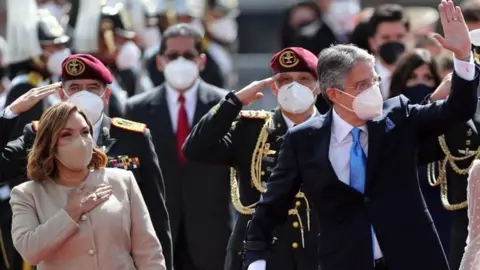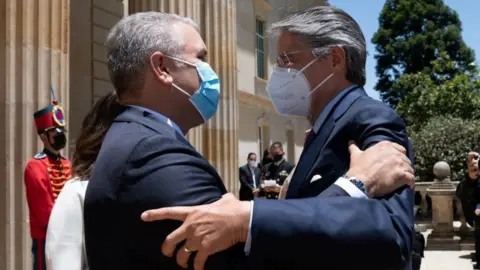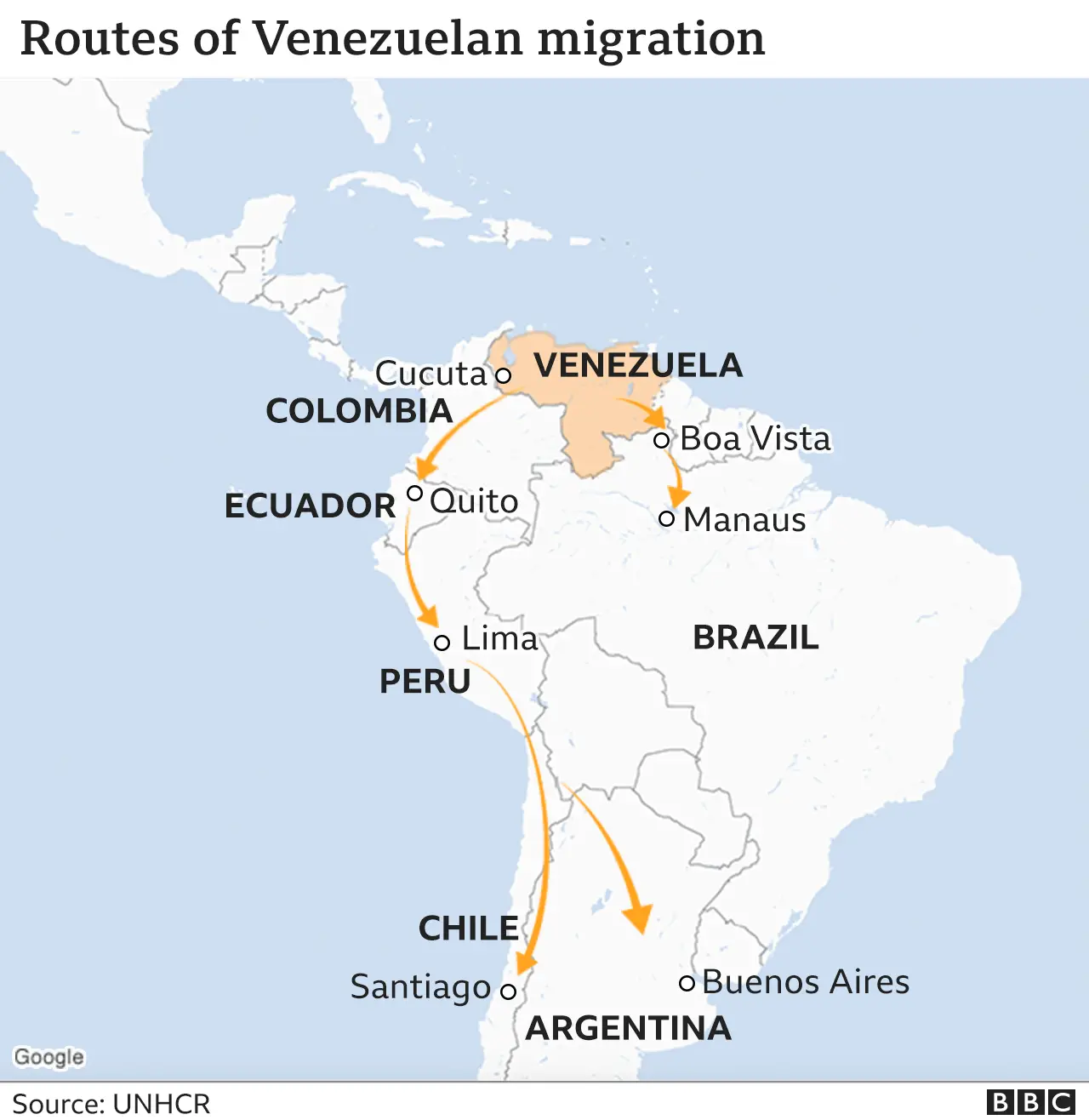Guillermo Lasso: Ecuador's new leader faces uphill struggle
 EPA
EPAGuillermo Lasso has been sworn in as Ecuador's president.
The 65-year-old conservative former banker defeated left-wing rival Andrés Arauz in a closely fought run-off election on 11 April.
He has taken up office amid one of the worst economic crises ever to confront the Andean nation, which is still grappling with the Covid-19 pandemic.
Mr Lasso has pledged to attract more investment to the oil sector and to kickstart the stagnated economy.
Slow progress on vaccines
Ecuador's Covid ordeal attracted international attention in 2020, when there were reports of bodies being left in the streets of the most populous city, Guayaquil.
With a population of 17.3 million, the nation has had more than 415,000 accumulated coronavirus cases, and deaths have surpassed 20,000.
Covid-19 vaccination has been moving with painful slowness - only some 2.3% of the population have been fully vaccinated - so accelerating this will take a major effort.
To try to keep his promise of vaccinating nine million Ecuadoreans during his first 100 days, Mr Lasso announced he would hold urgent bilateral talks with Russia, China, the United States, the European Union and Chile to try to acquire the necessary jabs.
Mr Lasso said he had already talked to Chilean President Sebastian Piñera about obtaining loans to purchase vaccines with the support of the Inter-American Development Bank.
He has also announced an alliance with Ecuador's National Electoral Council to use the information held on its voting roll and sites to speed up the vaccination process.
Rocky road to economic recovery
During his election campaign, Mr Lasso said that a successful national vaccination plan would be the key to reactivating Ecuador's stalled economy.
The coronavirus pandemic has had a devastating impact: the country has been driven into recession, with poverty and unemployment increasing.
But Mr Lasso will need to convince a politically divided country that his free-market and pro-business policies offer the best hope to lift Ecuador out of one of the darkest periods of its recent history.
The new president will have to start by seeking support in the National Assembly, where he has struggled to forge alliances and where left-wing groups pose a powerful counterweight.
Tackling long-running corruption is also seen as a major challenge.
A deeply rooted culture of soliciting bribes and syphoning off funds has drained Ecuador's main revenue earner, the state-owned oil company Petroecuador, which between 2012 and 2016 was estimated to have lost some $2.4bn (£1.7bn) to corruption.
The nation's health system has not escaped the corroding effects of graft, with reports of funds intended to tackle the Covid pandemic being mishandled by officials at every level of government.
The country is currently on its sixth health minister in four years after several resigned amidst coronavirus-related scandals.
Northern neighbour is key
One of Mr Lasso's first acts after being elected president was to visit Ecuador's northern neighbour, Colombia, with whom it shares a border of almost 600km (375 miles).
 Reuters
ReutersIn recent years, Ecuadorean authorities have become increasingly concerned about the encroachment of violent drug-trafficking gangs from Colombia into its northern provinces. They have reported increased drug seizures in 2021 but fear the Mexican and Colombian gangs behind the trafficking are gaining in strength.
Tens of thousands of Venezuelan migrants fleeing the economic and political crisis in their homeland have also entered Ecuador from Colombia, increasing the pressure on health and social services.

In his April talks with Colombian President Iván Duque, Mr Lasso said co-operation on trade, security and migrants would be his priority.
Mr Duque has urged Mr Lasso to follow Colombia's example and offer Venezuelan migrants temporary protected status. But with unemployment high and pressure on the health service increasing, such a move could prove unpopular with struggling Ecuadoreans.
